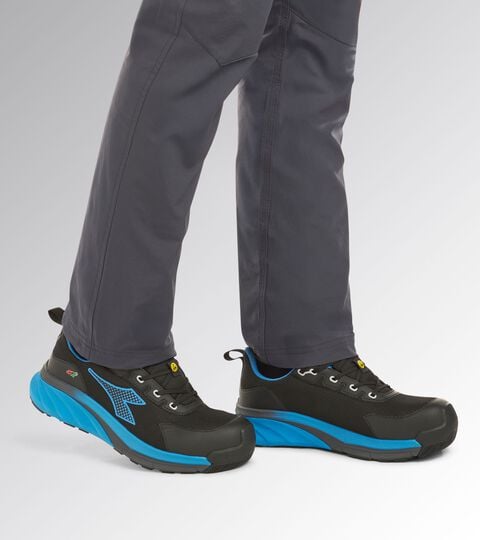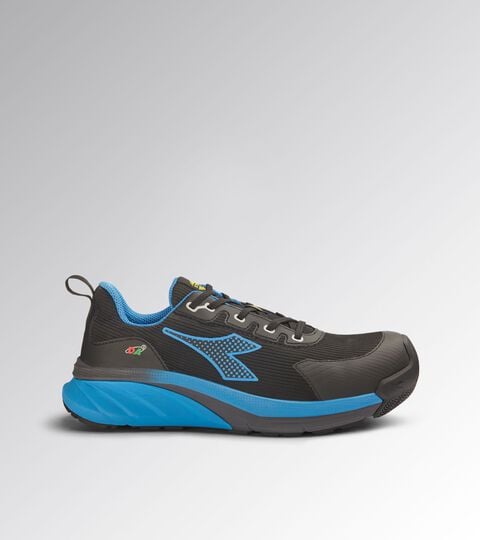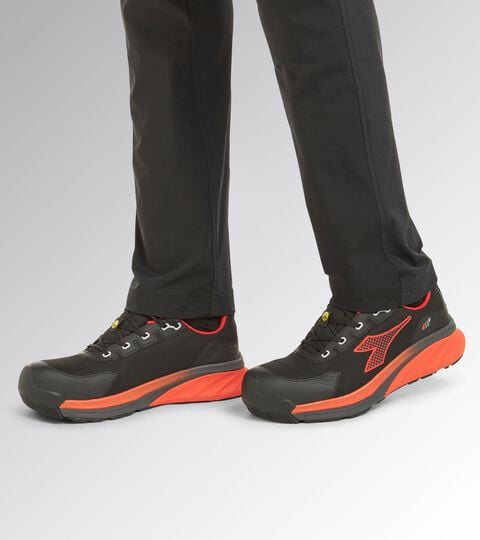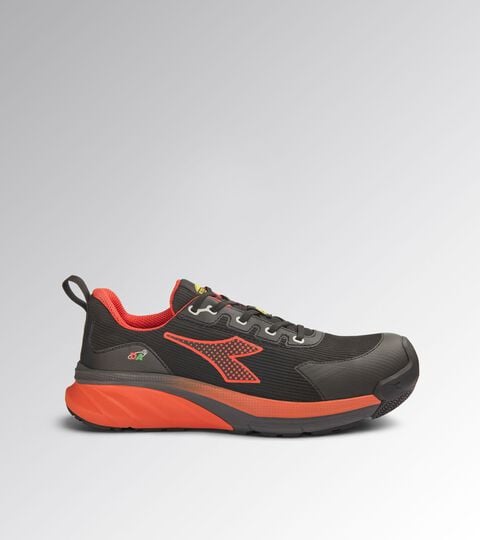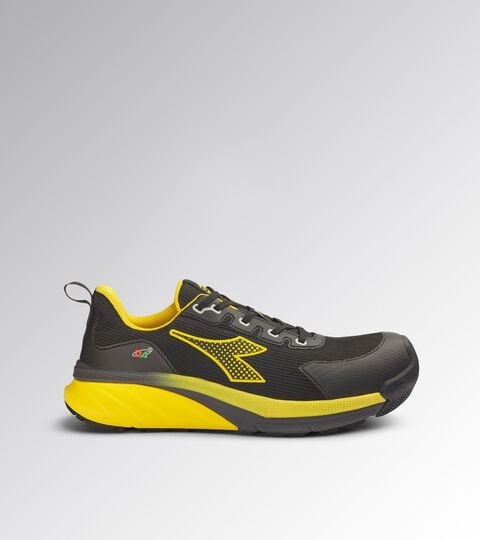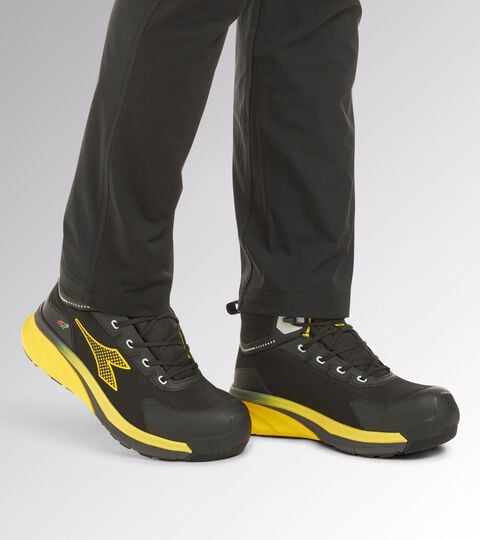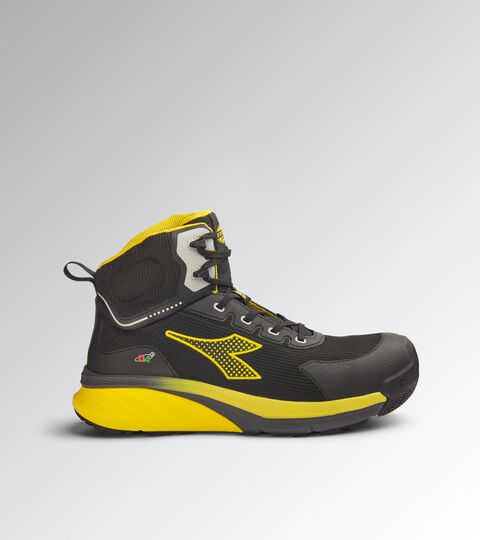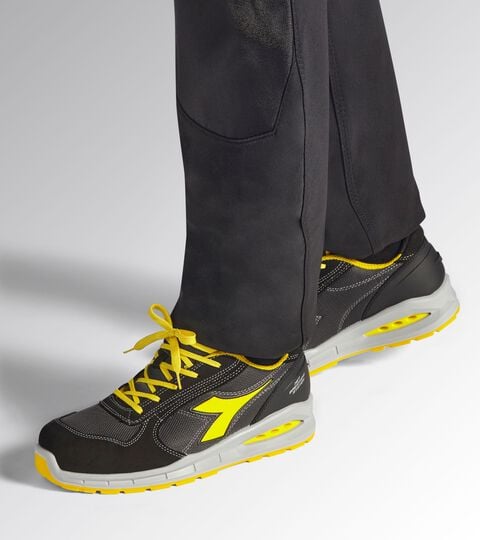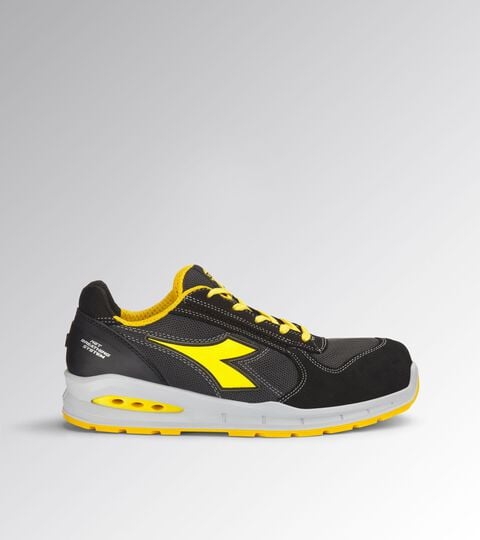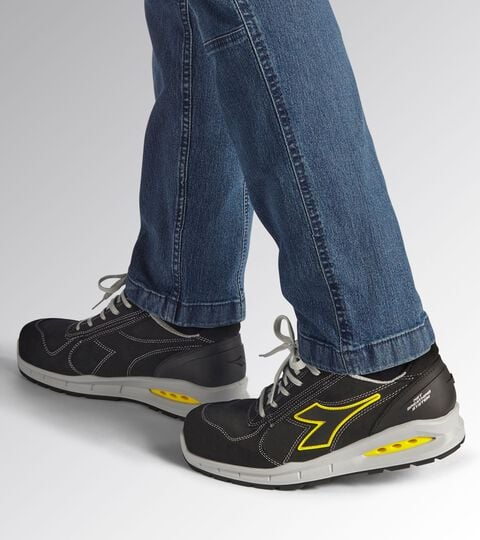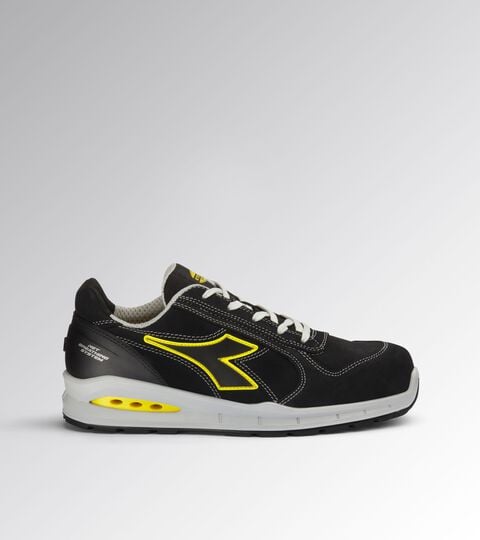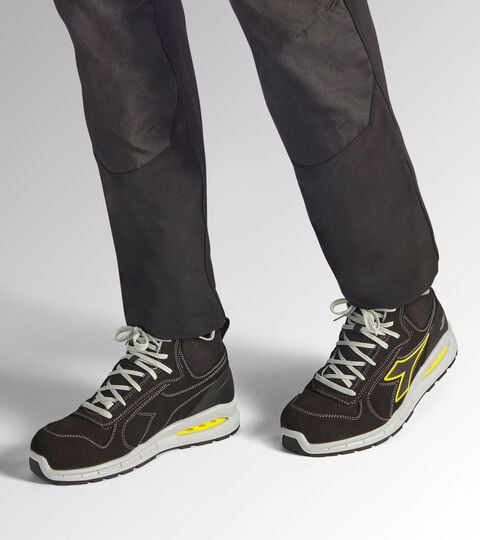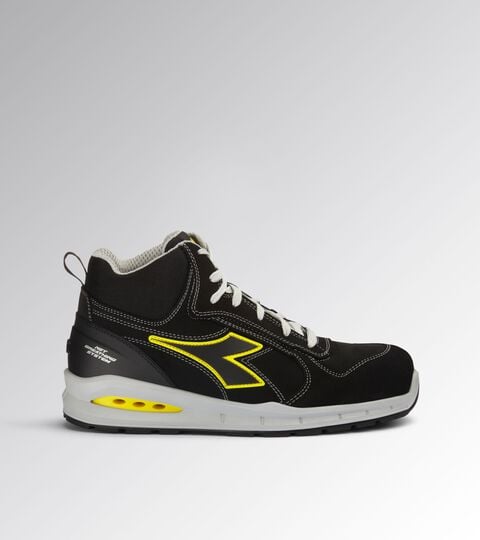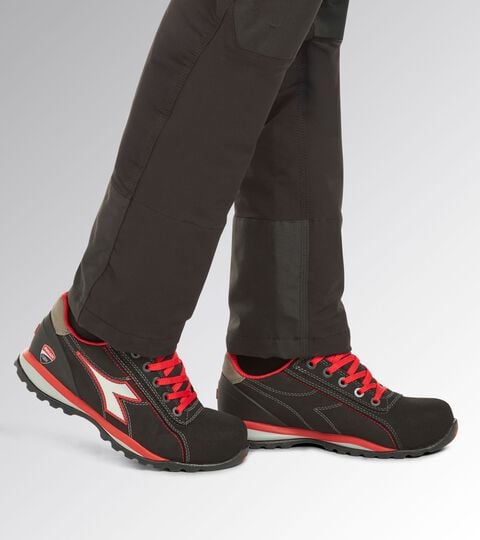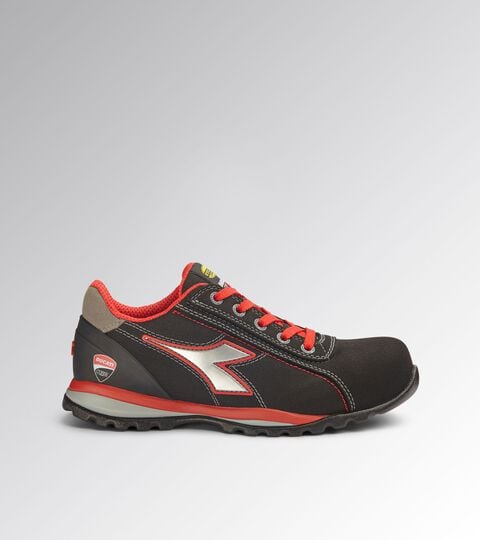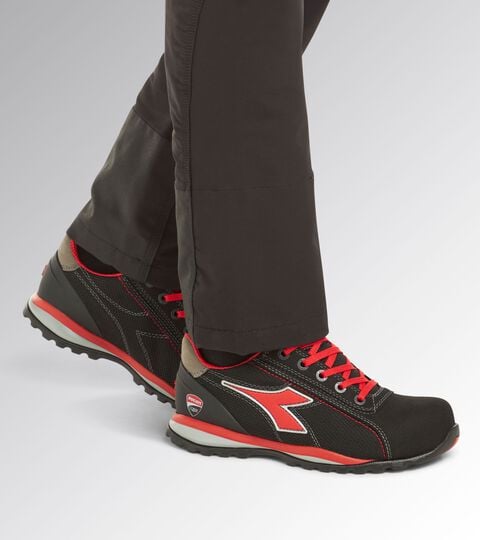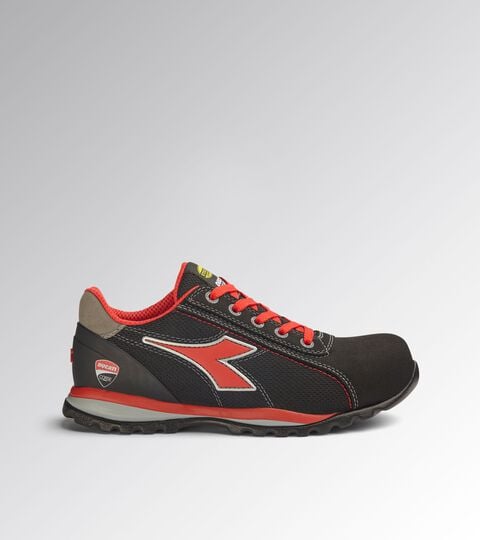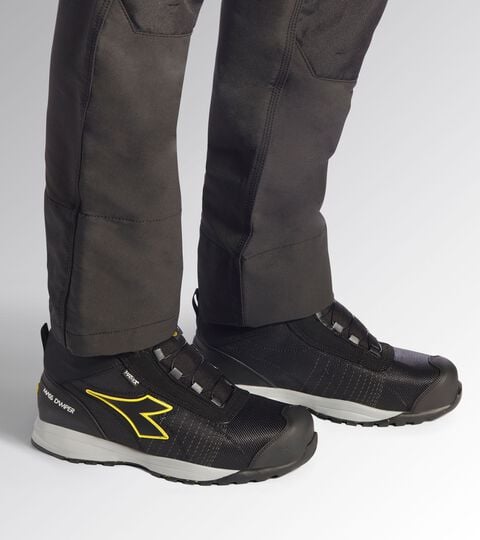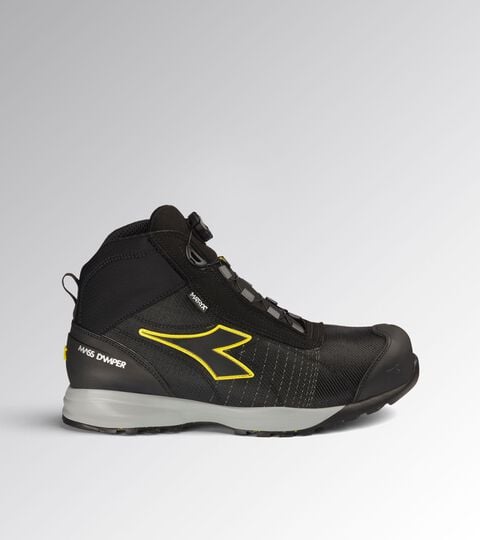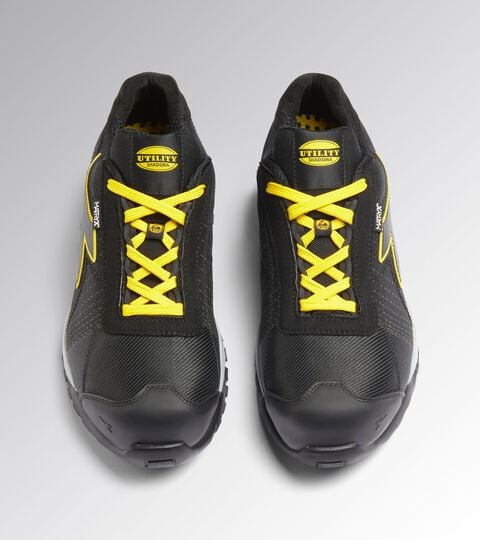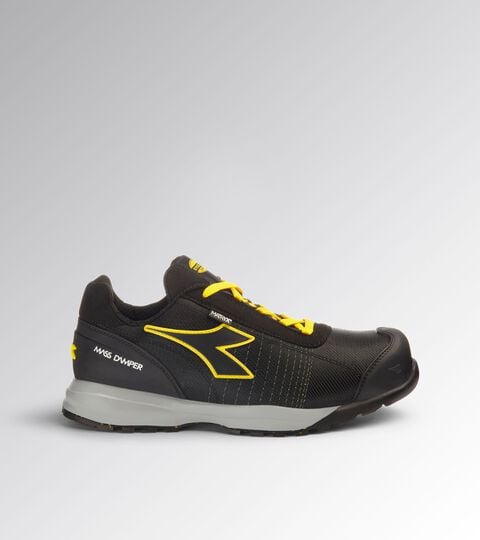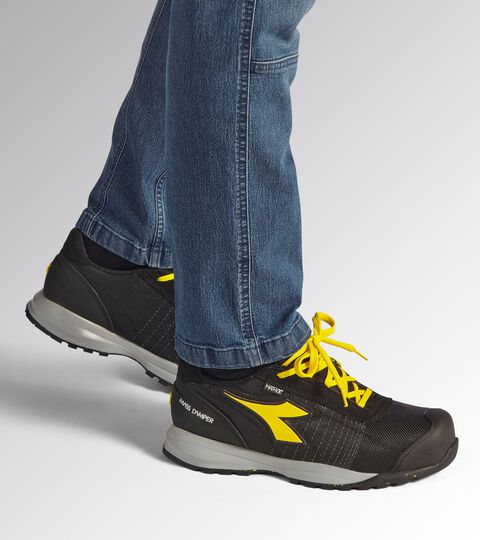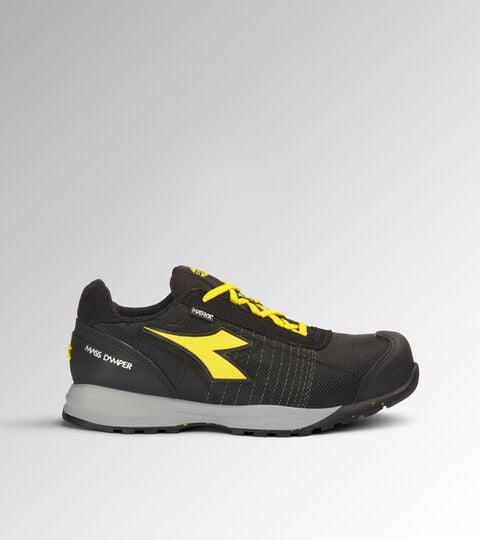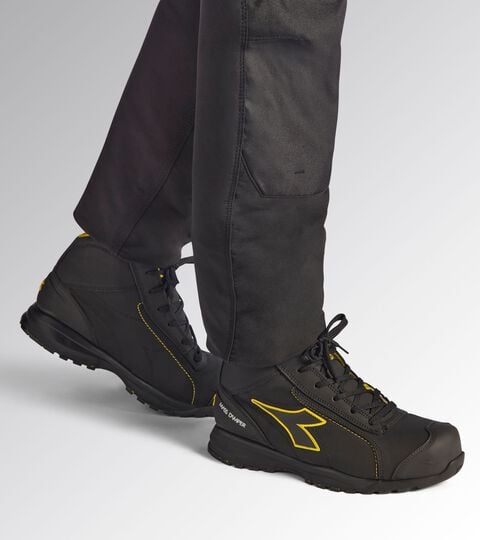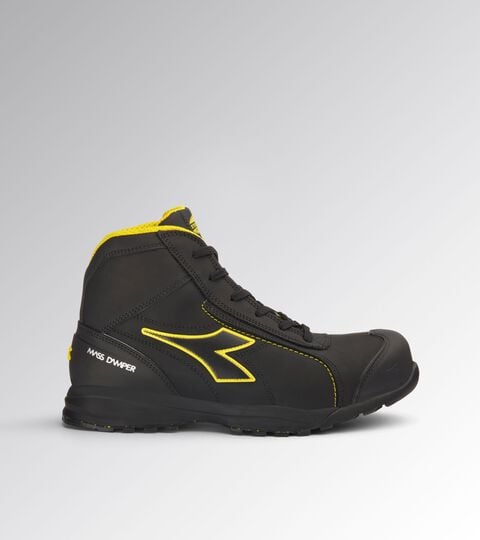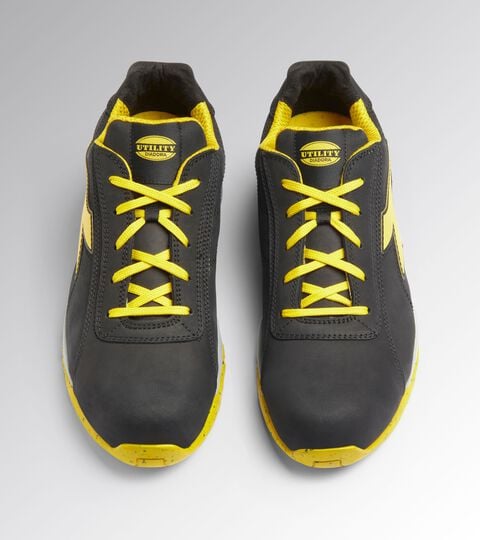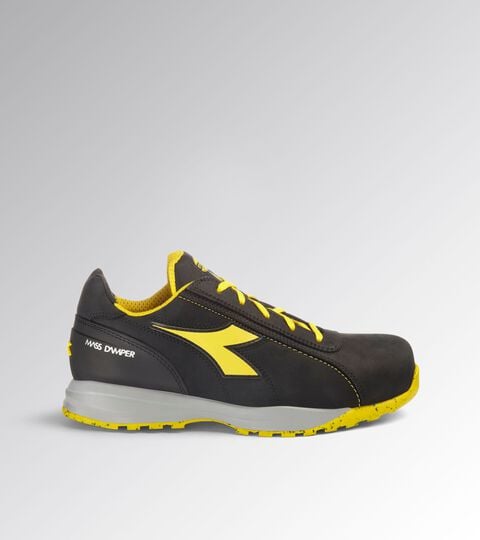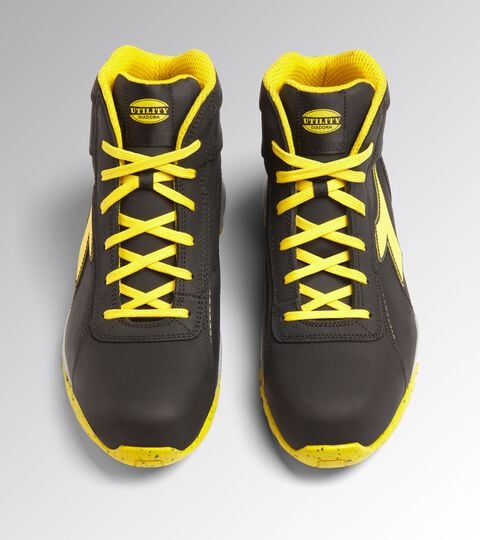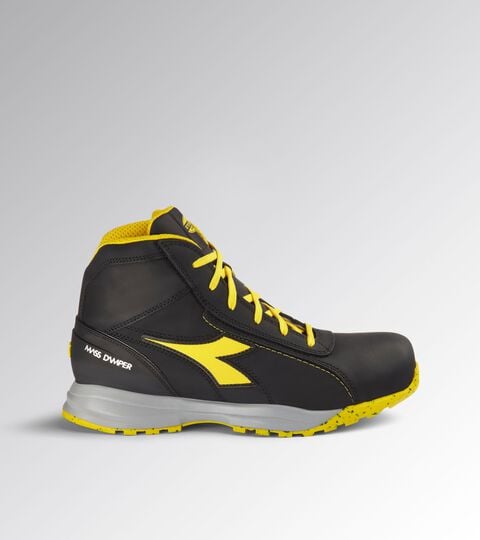Safety Shoes for Garages and Workshops
(67 Results)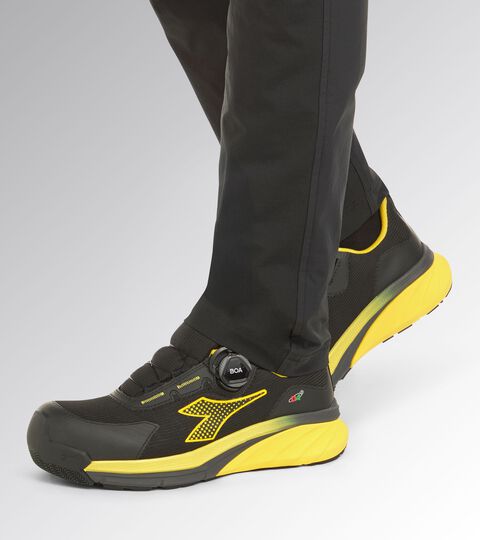
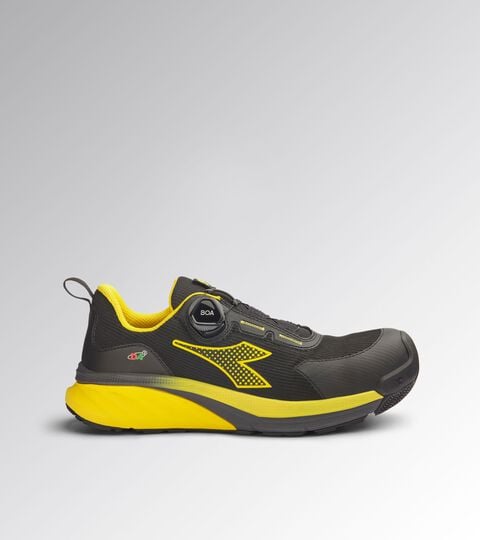
VORTEX DA2 BOA LOW S3S SC SR HRO ESD - Low safety shoe with BOA® Fit System
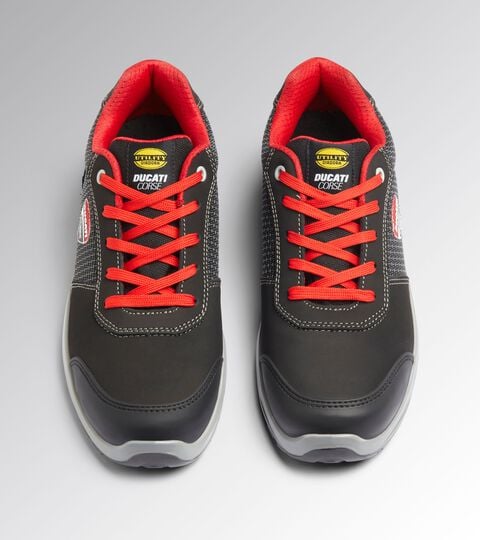
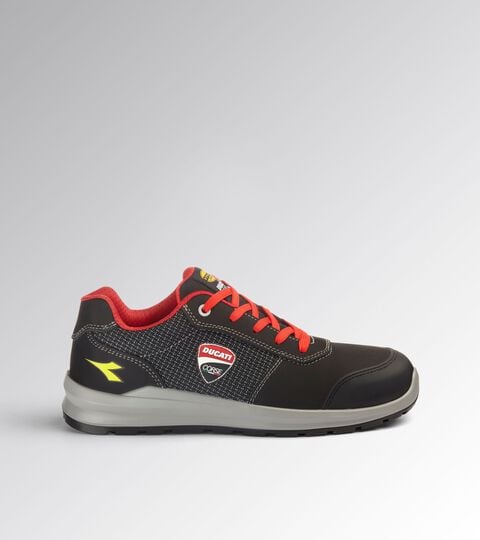
SPEEDY RACE LOW S3S FO SR SC MET FREE - Low safety shoe - Diadora Utility x Ducati Corse
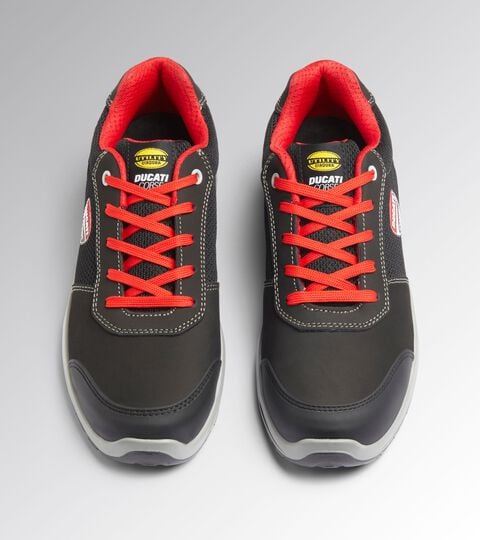
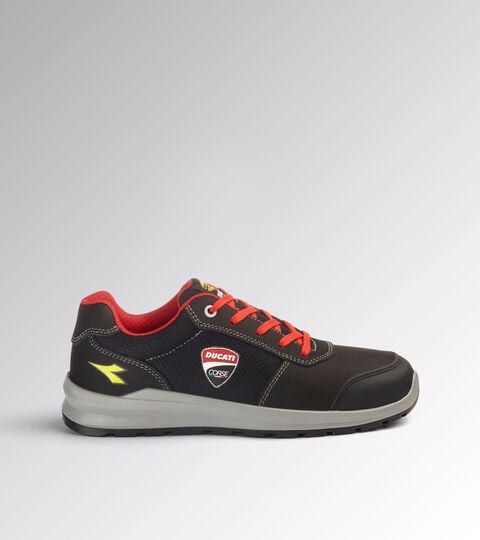
SPEEDY RACE LOW S1PS FO SR SC MET FREE - Low safety shoe - Diadora Utility x Ducati Corse
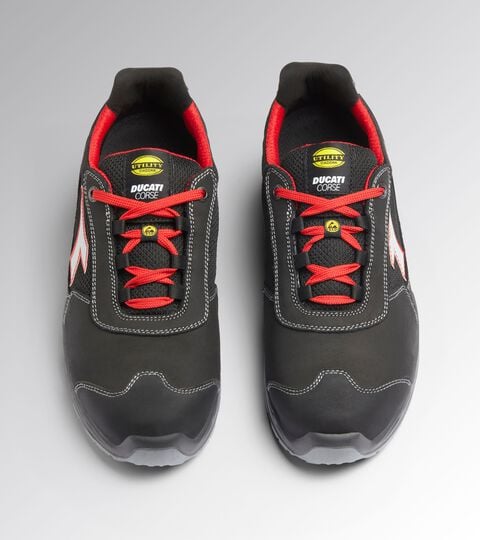
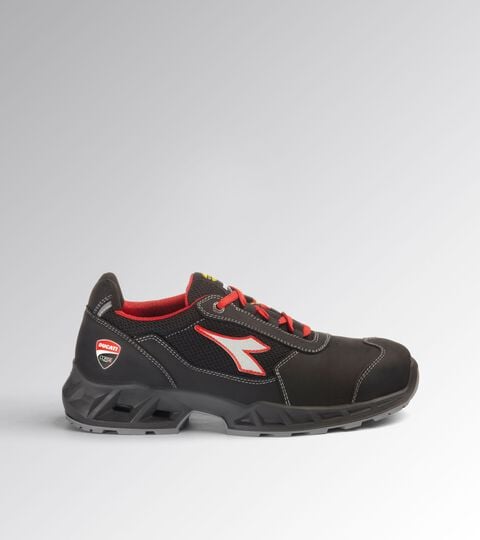
SHARK ENGINE LOW S1PS FO SR ESD - Low safety shoe - Diadora Utility x Ducati Corse
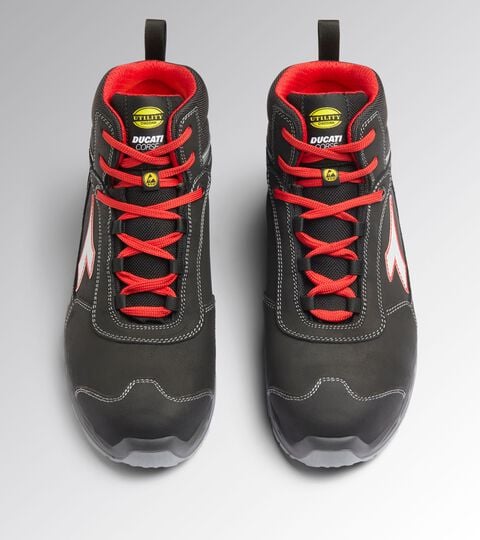
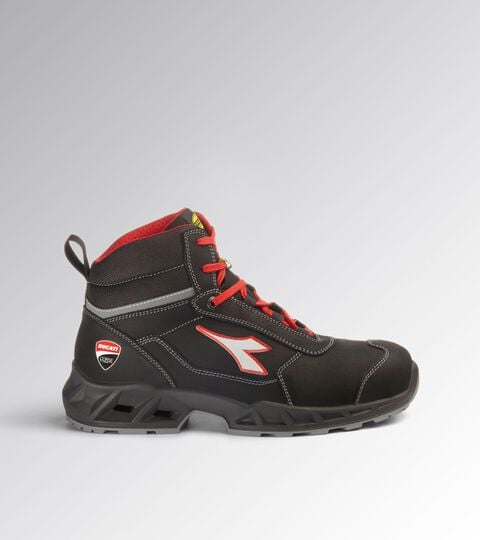
SHARK ENGINE MID S3S FO SR ESD - High safety shoe - Diadora Utility x Ducati Corse
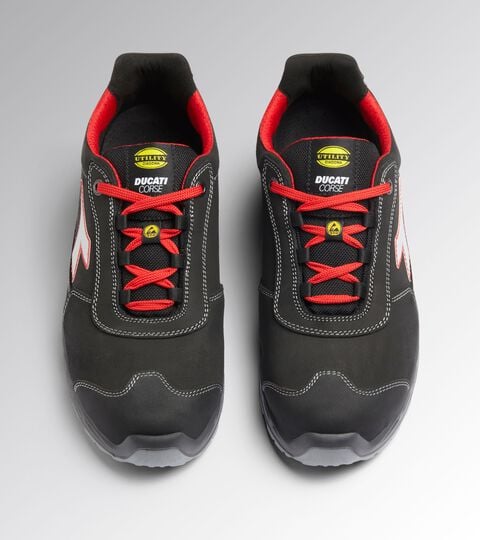
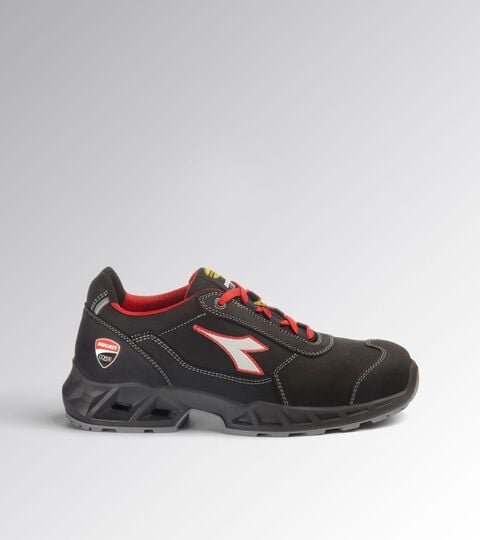
SHARK ENGINE LOW S3S FO SR ESD - Low safety shoe - Diadora Utility x Ducati Corse
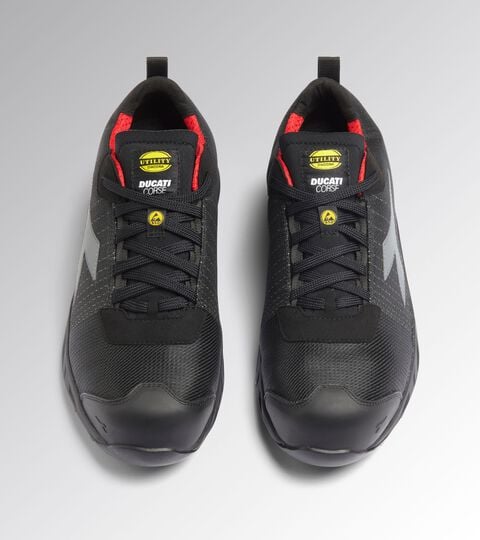
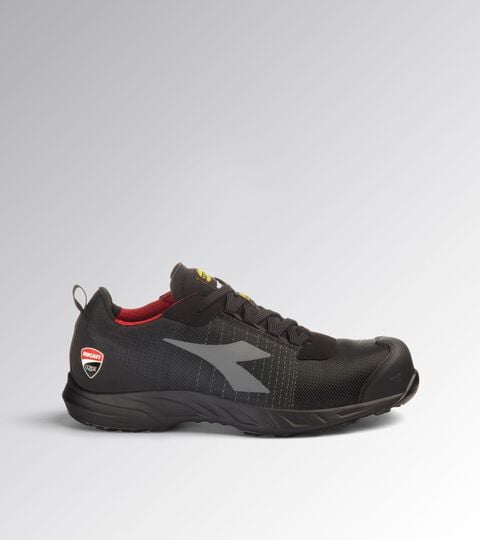
FLY MOTOR MATRYX LOW S3L FO SR HRO SC ESD - Low safety shoe - Diadora Utility x Ducati Corse
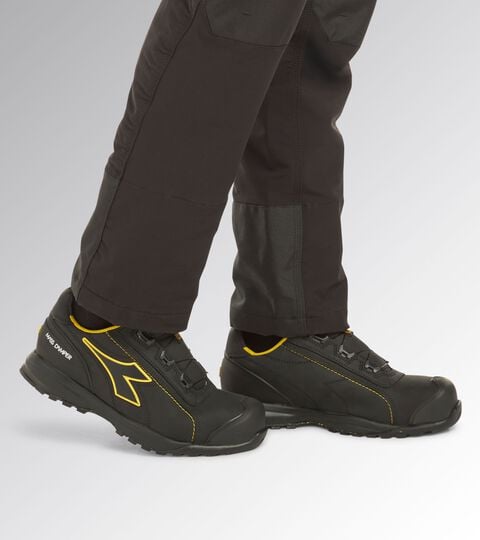
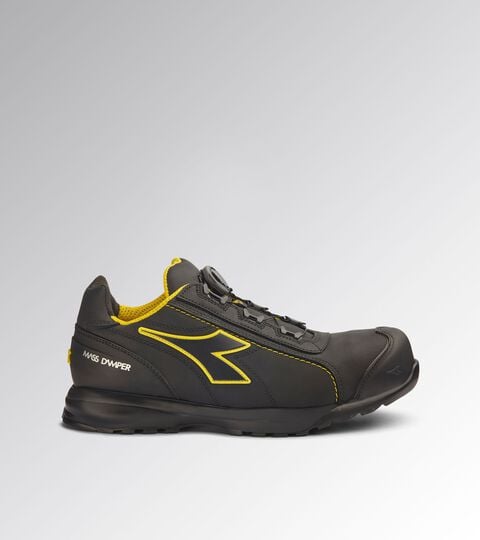
GLOVE MDS MASTER BOA LOW S3S FO HRO SR SC ESD - Low safety shoe with BOA® Fit System
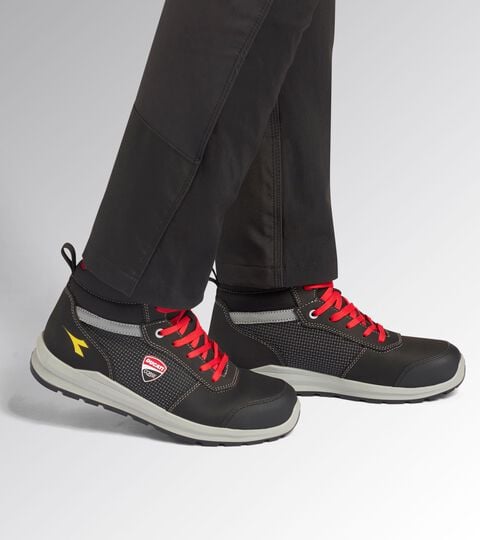
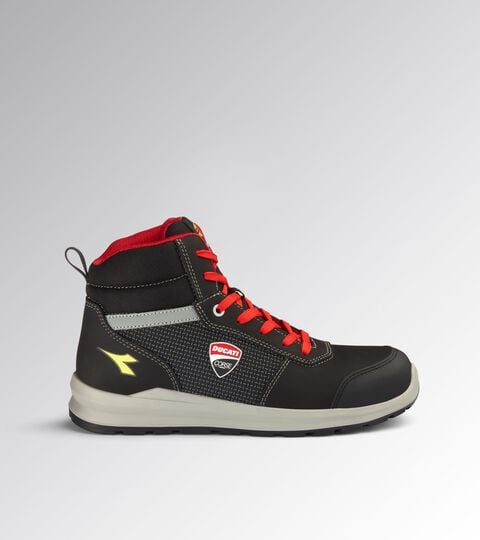
SPEEDY RACE MID S3S FO SR SC MET FREE - High safety shoe - Diadora Utility x Ducati Corse
Safety Shoes for the Mechanical Workshop
How to choose the best protective footwear for mechanics and workshop workers?
If you work in a mechanical workshop, you likely prefer safety shoes that are flexible, ergonomic, abrasion-resistant, and slip-resistant. Workshop tasks are mostly indoor, but they involve various situations and risks: walking on slippery floors, frequently driving vehicles to move or test them, working in uncomfortable positions, and handling grease and other materials that can stain and damage work clothes and footwear.
Here are the features to look for when choosing a good pair of safety shoes for mechanics, tire specialists, and other workshop professionals.
1. Comfortable and Flexible
In a workshop, you might find yourself working on your knees, lying down, in tight spaces, on ladders, and in other uncomfortable positions that force your foot to bend and twist. A safety shoe that is too rigid can be uncomfortable and put a lot of stress on your foot over time. Choose a model with a flexible sole: it will not only be healthier for your foot but will also last longer.
2. Low-cut
While a high ankle upper improves foot stability, in a workshop, it's essential that the shoe facilitates movement, maximizes flexibility (see above), and doesn't hinder you when driving a vehicle. Therefore, a low-cut safety shoe is the most common choice for mechanics and tire specialists.
3. Slip-resistant
Workshop floors can be covered in grease, oil, or other slippery substances. Choose safety shoes with SRA or SRC ratings, which indicate additional slip resistance. Pay particular attention to the maintenance of your work shoes: to keep the slip-resistant sole effective over time, clean it carefully following the advice in our guide.
4. Puncture-resistant
Besides slipping, workshop floors can also pose the risk of stepping on materials or tools that can puncture the shoe sole. Opt for safety shoes with a puncture-resistant plate, marked with the S3 or S1P rating.
5. Abrasion-resistant
Abrasion and wear threaten not only the sole but also the upper of your work shoes. Since you'll mostly be working indoors, you probably prefer not-too-heavy shoes: new-generation technical fabrics are highly breathable (especially in safety shoes classified as S1P) and lightweight, yet provide high resistance. Look for models that use technologies like Matryx 2.0, a technical fabric containing aramid and high-tenacity polyamide fibers.
6. Dark “stain-resistant” colors
Lubricant stains, oil, grease... If the aesthetic appearance of your shoes matters to you, tactically choose dark, neutral colors where stains can be less noticeable: gray, anthracite, dark blue.

